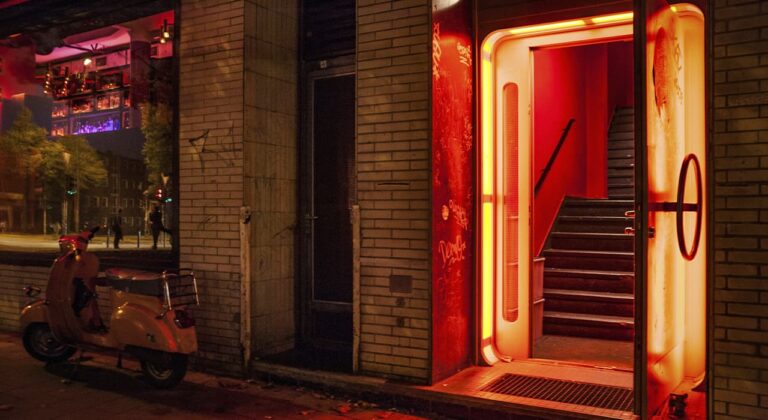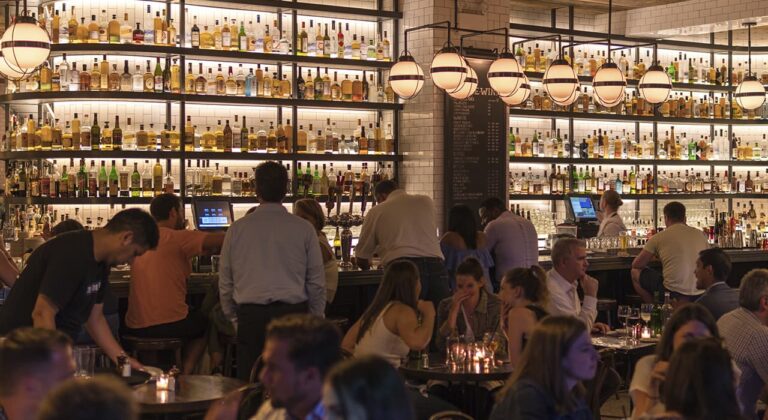“Luckenbach has more soul per square inch than any other bar!” In the center of the cozy bar is a cast-iron wood-burning stove that heats up reindeer sausage in winter and a nest for mother hens in spring. The heads of the deer from the 20s are so moth-eaten that they are smiling.
A chair on the ceiling with a sign “Reserved for Benny” is waiting for the return of a faithful patron who has died. At The Luckenbach Bar, we like to philosophize, drink longnecks, play dominoes and tell stories at the bar.
The dance hall was remodeled in the early 1930s, and the new structure included a maple dance floor. During the dances, William’s wife, Anna Schupp Engel, often served home-cooked meals on her own china plates. When William died in 1935, his sons took control of the family business, including the saloon and dance hall. One son, Benno Engel, served as the new postmaster. In 1960, the town’s population was sixty, but over the following decades it dropped to twenty-five. By 1967, the seventh-grade school was merged with the Fredericksburg schools.
In 1971, Benno Engel sold Luckenbach to John Russell (Hondo) Crouch of neighboring Comfort. Kathy Morgan and Hitch Cook also purchased the town as partners with Crouch. Calling himself “the mayor” and “the clown prince of Luckenbach,” Crouch, a former swimming champion, actor, and columnist, declared Luckenbach “a free state of In 1973, singer-songwriter Jerry Jeff Walker recorded his best-selling album Viva Terlingua in Luckenbach, and successfully turned the small community into a spoof of the nearby “White House of Texas,” Lyndon Johnson’s home on Pedernales at the LBJ Ranch. Frequent festivals-including the annual Mud Day, the annual hug, the women’s chili cook-off, the Great Luckenbach World’s Fair, and the centennial celebration of the prohibitionist Bicentennial (a movement to protest the commercialization of the U.S. Bicentennial in 1976), to which the Prince of Wales and Elizabeth Taylor were invited-attracted tens of thousands of people to the pastoral setting.
Popularized in regional culture as a place where “Everybody’s Somebody,” Luckenbach reached legendary proportions in 1977, the year after Hondo’s death, when Waylon Jennings’ hit song “Luckenbach, Texas (Back to the Basics of Love)” became a national favorite. . The city attracted both professional and amateur musicians who enjoyed the relaxed historical atmosphere. The state historical markers for the Luckenbach School and the town of Luckenbach were installed in 1982 and 1986, respectively. At the beginning of the new millennium, the Texas Almanac gave the population of Luckenbach as twenty-five, although the sign for tourists at the entrance to “old” Luckenbach indicated a population of three. The Lukenbach Club continued to meet seasonally in the old schoolhouse to maintain the grounds and sustain what remained of the sense of community.


